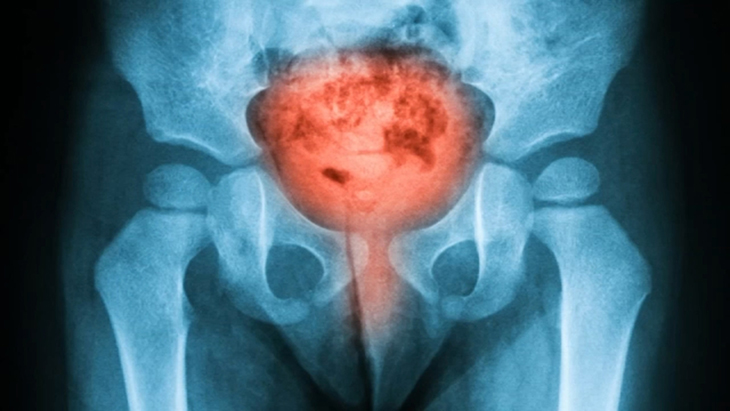
Antibiotic-resistant bacteria and fungi have been a problem. These bring about more than 2.8 million infections and 35,000 U.S. deaths every year. Hence, doctors are constantly working hard for the most effective cure and if this latest find gets a stamp of approval, the drug will be the first new treatment for uncomplicated urinary tract infections. Nothing has happened in the past 2 decades. That is, until now.
GSK has stopped two phase 3 clinical trials for gepotidacin. This could be the potential new antibiotic for uncomplicated urinary tract infections (uUTIs),. The phase came close to one year earlier than what they have anticipated because they have discovered that it was extremely effective in hitting treatment goals. In fact, the company proudly announced it last November of 2022.
The first-in-class triazaacenaphthylene antibiotic would be the first new class of oral antibiotic treatments for UTIs in more than 20 years. What Gepotidacin does is block two vital enzymes behind the bacterial replication.
The company behind the drug spoke about this and they say that the decision to stop enrollment for trials was based on a pre-specified interim analysis of efficacy and safety data by the Independent Data Monitoring Committee (IDMC). They saw that gepotidacin met the combined primary efficacy endpoint in the two trials they conducted.
GSK plans to submit a new-drug application to the U.S. Food and Drug Administration (FDA) soon. In fact, this is expected to happen in the first half of 2023.
“With the number of uUTIs caused by [resistant] bacteria increasing, new antibiotic treatments are necessary,” said GSK’s senior vice president of development, Christopher Corsico, MD, MPH, in the press release. The committee’s recommendation to stop the EAGLE-2 and 3 trials early for efficacy gives GSK with a chance to start with the approval process so that they are able to provide a new class of antibiotics to patients with uUTIs, explained Dr. Corisco.
Gepotidacin: The First New Novel Antibiotic for uUTI in Over 2 Decades
There is hope and excitement for the trial results and the potential approval of gepotidacin. This stems from the fact that this belongs to a whole new class of antibiotics, said Amesh A. Adalja, MD. He is a senior scholar at the Johns Hopkins Center for Health Security in Baltimore. He was not part of the development of the antibiotic. “New classes of antibiotics don’t come around so often,” he says.
The development of gepotidacin came from a public-private partnership between GSK and the U.S. government in order to provide support the development of antibiotics to fight antibiotic resistance, as per the company.
This kind of collaboration provides encouragement with the development and eventual approval of new antibiotics. “It is a good thing to see a major pharmaceutical company like GSK involved in antibiotics, which are not a lucrative aspect of pharmaceuticals,” explained Dr. Adalja.
Unlike medicines that sometimes require long-term ingestion, and for some, even forever, antibiotics only require a short course of treatment. This means that the companies behind these don’t enjoy the revenue compared to the other meds in the market.
Clinical Trials Found Gepotidacin Had the Same Effectivity as a Common First-Line Antibiotics
In the two trials that included more than 3,000 people, the investigators compared the safety and efficacy of gepotidacin with nitrofurantoin. The latter is one of the standard first-line antibiotic treatments for uUTIs. Their goal was to compare effectivity when it comes to curing infections. Participants received either 1,500 milligrams (mg) of gepotidacin twice a day for five days or 100 mg of nitrofurantoin twice a day for the same amount of days.
The primary efficacy end point was combined clinical (symptoms or signs of the UTI are absent) and microbiologic resolution (no evidence of the infections in the lab tests) at the test-of-cure visit. This happened after 28 days. Aside from meeting the primary efficacy end point, there were no safety concerns reported and seen during the trial, as per GSK.
Antibiotic Resistance Could Undo Years of Medical Growth
“Antibiotic resistance threatens to take medicine back to the pre-penicillin era; it makes all the routine aspects of medicine: such as joint replacements, transplants, cancer chemotherapy, and treatment of infections more difficult and complicated,” Adalja said.
According to a 2019 report on antibiotic resistance threats in the United States from the Centers for Disease Control and Prevention (CDC), antibiotic-resistant bacteria and fungi are behind than the 2.8 million infections and 35,000 deaths per year in the U.S. This means that there is new antibiotic-resistant infection every 11 seconds, and a death because of these infections happen every 15 minutes.
UTIs are Becoming More Resistant to Major Antibiotics
UTIs are oftentimes brought about by bacteria that enter the bladder, which is part of the urinary tract. This is why these are also referred to as bladder infections. These infections are about 30 times more common in females and more than half of them will experience at least one UTI issue in their life, according to the U.S. Department of Health and Human Services.
Some women, on the other hand, also experience UTIs time and again. In fact, as many as 4 in 10 women who get a UTI can get another one after six months.
Fact is, UTIs are becoming more resistant to major antibiotics. This means that the infection that comes with it can be more challenging to treat. Some even lead to further complications. This was reported by Stanford Medicine.
Novel Antibiotic Will Probably be Most Studied and Used to Treat More Serious Infections
According to Adalja, getting the antibiotic approved for urinary tract infections just the first step. “I don’t expect a major impact in terms of urinary tract infection treatment, as there are multiple options in that space. What will occur, is the drug will start to be used off-label for more serious infections and be studied for those indications,” he said.
Unapproved use of an approved drug is also called “off-label.” As for this, it simply means that the new antibiotic would most likely be utilized for other infections aside from UTIs.



